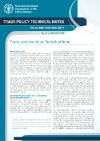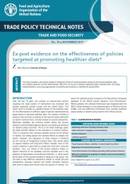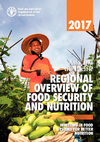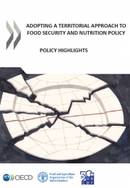الموارد
يتمثل أحد أكبر التحديات في يومنا هذا في وضع حد للجوع والفقر بموازاة ضمان استدامة الزراعة والنظم الغذائية. وهذا التحدي كبير بفعل تواصل النمو السكاني والتغيرات العميقة في الطلب على الأغذية والتهديد الناشئ عن الهجرة المكثّفة لشباب الريف سعيًا إلى حياة أفضل. ويعرض هذا التقرير استراتيجيات من شأنها أن تمكّن من الاستفادة من طاقات النظم الغذائية الكامنة لتصبح محرّك التنمية الاقتصادية والازدهار الريفي الشاملين في البلدان المنخفضة الدخل. وهو...
The relationship between trade, food security and nutrition is attracting growing attention within the trade and development agendas. The Sustainable Development Goals (SDGs) cite trade as an important means to achieve the goals related to food security and nutrition. In addition, the Rome Declaration on Nutrition and the Framework for Action of the Second International Conference on Nutrition (ICN2) acknowledge that trade can play an important role in reaching nutritional targets.1 How then does international trade actually influence nutrition, and how can the positive impacts of trade on nutrition be maximized?
Over the last 10 years, the number of national-level policies targeting the triple burden of malnutrition has increased very quickly, especially outside Europe and the United States. This report aims to provide an updated picture of the evidence base on the effectiveness for different types of policies implemented by governments to promote healthier diets.
When the international community came together in 2015 to announce its ambitious 17 Sustainable Development Goals (SDGs) the mood was one of optimism. Agenda 2030, as it is now known, would, among other things, lead us to a world without hunger and poverty. Two years later, in 2017, we still believe that we can become the “zero hunger generation.” But the clock is ticking, and while good progress has been made towards eliminating hunger and poverty in the Asia-Pacific region, recent signs suggest that we must redouble our efforts in pursuit of these goals.
The calls for action are numerous: at the United Nations Rio+20 Conference on Sustainable Development in September 2012, governments reaffirmed the fundamental right of everyone to be free from hunger. The same year, the UN Secretary General launched the “Zero Hunger Challenge” campaign to end hunger globally. The United Nations 2030 Agenda for Sustainable Development, endorsed in September 2015, confirms the importance of achieving food security, and eradicating hunger is the second Sustainable Development Goal (SDG 2).





